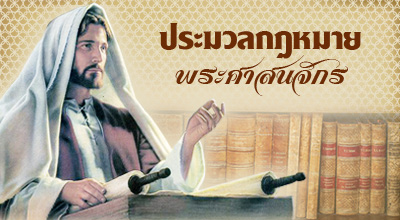


หมวด ๕ การยกเว้น
๘๕. การยกเว้นหรือการผ่อนผันตามกฎหมายพระศาสนจักรเท่านั้นในกรณีเฉพาะ ผู้มีอำนาจบริหารสามารถออกให้ยกเว้นได้ตามอำนาจที่ตนมี เช่นเดียวกันผู้ที่ได้รับมอบอำนาจอย่างแจ้งชัดหรือโดยปริยาย ก็สามารถกระทำได้ตามตัวบทกฎหมายหรือในฐานะผู้กระทำการแทนโดยชอบด้วยกฎหมาย
๘๖. กฎหมายที่กำหนดองค์ประกอบหลักของสถาบันหรือนิติกรรมไม่สามารถยกเว้นให้ได้
๘๗. วรรค ๑ ทุกครั้งที่วินิจฉัยว่าการยกเว้นจะทำให้เกิดคุณประโยชน์ด้านจิตใจต่อบรรดาคริสตชน พระสังฆราชสังฆมณฑลสามารถยกเว้นกฎหมายทางวินัยทั้งที่เป็นสากลและเฉพาะถิ่น ซึ่งออกโดยผู้มีอำนาจสูงสุดของพระ ศาสนจักร เพื่อใช้บังคับในเขตสังฆมณฑลของตน หรือใช้บังคับกับผู้อยู่ในปกครองของตน อย่างไรก็ตาม พระสังฆราชสังฆมณฑล ไม่สามารถให้การยกเว้นกฎหมายว่าด้วยการพิจารณาความหรือกฎหมายอาญา
หรือกฎหมายที่อำนาจการยกเว้นถูกสงวนไว้เป็นพิเศษสำหรับสันตะสำนักหรือผู้มีอำนาจอื่น
วรรค ๒ หากการร้องเรียนไปยังสันตะสำนักเป็นการลำบาก และขณะเดียวกัน จะมีอันตรายก่อให้เกิดผลเสียร้ายแรงอันเกิดจากความล่าช้า ผู้ใหญ่ผู้ทรงอำนาจสามารถยกเว้นจากกฎหมายทางวินัยที่ระบุมาข้างต้น แม้ว่าการยกเว้นจะสงวนสิทธิ์ไว้กับสันตะสำนักก็ตาม ขอแต่ว่าเป็นเรื่องที่เกี่ยวกับการยกเว้นที่สันตะสำนักเคยให้ ซึ่งมีกรณีแวดล้อมเดียวกัน โดยยังต้องยึดถือตามบทบัญญัติในกฎหมายมาตรา ๒๙๑
๘๘. ผู้ใหญ่ผู้ทรงอำนาจประจำท้องถิ่นสามารถยกเว้นจากกฎหมายสังฆมณฑลและกฎหมายที่ออกโดยสภาระดับชาติหรือสภาแขวงหรือโดยสภาพระสังฆราชเมื่อวินิจฉัยแล้วว่าการยกเว้นนั้นจะก่อให้เกิดผลดีต่อคริสตชน
๘๙. พระสงฆ์เจ้าอาวาสก็ดี และพระสงฆ์อื่นก็ดี หรือสังฆานุกรก็ดี หาได้สามารถให้การยกเว้นจากกฎหมายสากลหรือท้องถิ่นไม่ เว้นแต่ว่าผู้นั้นได้รับมอบอำนาจอย่างชัดแจ้ง๙๐. วรรค ๑ ห้ามออกข้อยกเว้นจากกฎหมายพระศาสนจักรโดยปราศจากเหตุผลอันสมควรและถูกต้อง โดยมิได้คำนึงถึงกรณีแวดล้อมของเรื่อง และความหนักเบาของกฎหมาย มิฉะนั้นการยกเว้นนั้นจะไม่ถูกต้องตามกฎหมายและเป็นโมฆะ เว้นไว้แต่ว่า เป็นการออกโดยผู้ออกกฎหมายนั้น หรือผู้ใหญ่ของผู้ออกกฎหมายนั้นเอง
วรรค ๒ เมื่อมีความสงสัยเกี่ยวกับการมีเหตุผลเพียงพอหรือไม่ การยกเว้นนั้นให้ถือว่าถูกต้องตามกฎหมายและมีผลบังคับใช้
๙๑. ผู้มีอำนาจออกข้อยกเว้น สามารถให้การยกเว้นได้ แม้ว่าเขาจะอยู่นอกเขตปกครองของตน เขาสามารถให้การยกเว้นแก่ผู้อยู่ใต้อำนาจ ซึ่งอยู่นอกเขตปกครองของตนด้วยและยังสามารถให้การยกเว้นแก่ผู้เดินทางที่ขณะนั้นอยู่ในเขตการปกครองของตน รวมทั้งให้การยกเว้นแก่ตนเองด้วย เว้นแต่จะมีข้อกำหนดตรงกันข้ามกำหนดไว้อย่างชัดแจ้ง
๙๒. ต้องตีความอย่างเคร่งครัด มิใช่เฉพาะการให้การยกเว้น ตามกฎหมายมาตรา ๓๖ วรรค ๑ เท่านั้น แต่ต้องตีความอย่างเคร่งครัดเกี่ยวกับอำนาจในการให้การยกเว้นเฉพาะกรณีด้วย
๙๓. ข้อยกเว้นซึ่งได้นำไปใช้อย่างต่อเนื่องกันมาสิ้นสุดลง ในทำนองเดียวกับสิทธิพิเศษ และยังสิ้นสุดลงเพราะเหตุจูงใจของในการยกเว้นนั้นสิ้นสุดลงอย่างสิ้นเชิง
Can.85 A dispensation, or the relaxation of a merely eclesiastical law in a particular case, can be granted by those who enjoy executive power, within the limits of their competence, as well as by those to whom the power of dispensing has been given explicitly or implicitly either by the law itself or by lawful delegation.
Can.86 Laws, to the extent that they define that which essentially constitutes juridical institutes or acts, are not subject to dispensation.
Can.87 As often as he judges that a dispensation will contribute to the spiritual good of the faithful, the diocesan bishop can dispense from both universal and particular disciplinary laws established for his territory or for his subjects by the supreme authority of the Church. He cannot dispense, however, form procedural or penal laws or from those laws whose dispensation is especially reserved to the ApostolicSee or to another authority.
$2 If recourse to the Holy See is difficult and, at the same time, there is danger of grave harm in delay, any ordinary can dispense from the above mentioned disciplinary law, even if the dispensation is reserved to the Holy See, provided that the matter concerns a dispensation which the Holy See is wont to grant under the
same circumstances with due regard for the prescription of can. 291
Can.88 The local ordinary can dispense from diocesan laws and, as often as he judges that a dispensation will contribute to the good of the faithful, from laws passed by a plenary or provincial council or by the conference of bishops.
Can.89 The pastor and other presbyters or deacons cannot dispense from a universal or particular law unless this power has been expressly granted to them.
Can.90 $1 A dispensation from an ecclesiastical law may not be granted without a just and reasonable cause and without taking into consideration the circumstances of the case and the gravity of the law from which the dispensation is to be given; otherwise the dispensation is illicit and, unless it is given by the legislator himself or his superior, it is also invalid.
$2 When there is a doubt about the sufficiency of the cause, a dispensation is granted validly and licitly.
Can.91 One who possesses the power of dispensing can exercise it, even though he is outside his own territory, for his subjects, though they are absent from his territory, and also, unless the contrary is expressly established, for travelers actually present in his territory, as well as on his own behalf.
Can.92 A strict interpretation must be given not only to a dispensation according to can.36 $1 but also to the very power of dispensing
Can.93 A dispensation which has successive applications ceases in the same ways as a privilege and also because of the certain and complete cessation of the motivating cause.